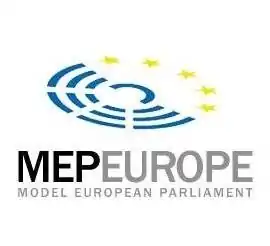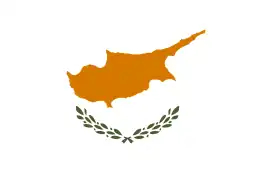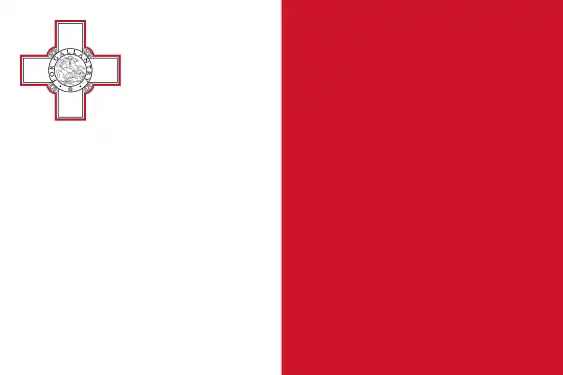Model European Parliament
The Model European Parliament (MEP) is an international simulation of the working of the European Parliament for students aged 16–19. The aim of the programme is to give young people an insight into the workings of the European Parliament and raise their awareness of European citizenship.[1] Two sessions are held each year, each involving 180 secondary school students.[2]
| Model European Parliament | |
|---|---|
 | |
| Frequency | Biannual (spring & autumn) |
| Location(s) | Varies |
| Years active | Since 1994 |
| Previous event | Spring 2023: Brussels, Belgium |
| Next event | Autumn 2023: Prague, Czech Republic |
| Participants | 180 students per session |
| Organised by | Model European Parliament Foundation |
Format
The format of the MEP resembles that of the actual European Parliament: approximately 15 delegates of different nationalities form a committee that debates a certain topic extensively and drafts a resolution, a non-binding piece of legislation outlining the key issues of the topic and proposing solutions.[3] The drafting process is followed by lobbying, during which delegates may debate and propose amendments for other resolutions. The finale of a session is the General Assembly (GA). During this, resolutions and amendments are debated and voted upon by all of the delegates. Any successful resolutions are then forwarded to the European Parliament, the European Commission and the Council of the European Union.[4] The elder members are titled as Presidents or Chairs, while the youngers are entitled as delegates.
Participating countries
.jpg.webp)
As of 2013, participants come from all 28 member states of the European Union and two candidate countries: Republic of Macedonia and Turkey. Each country can choose five delegates in any way they deem appropriate. Many hold regional and/or national sessions using the same format but with a smaller scope.[5]
Connections to politics
Famous members of the European Parliament often visit the MEP, hold speeches and participate in debates. Some delegates of the international session in Brussels in February 2023 had the honour to be welcomed by the President of the European Parliament Roberta Metsola. Also the First Vice President of the European Parliament Othmar Karas and the Vice Presidents Rainer Wieland and Evelyn Regner visited the session in several parts of the programme. The General Assembly of the sessions is often held in real Parliamentary or governmental buildings of the hosting country, region or city or the European Union. In 2019 there was a General Assembly in the real building of the European Parliament in Strasbourg. The international session in February 2023 in Brussels had the General Assembly in the building of the European Committee of the Regions. Also national parliaments like the Narodno Sabranie in Sofia,Bulgaria, hosted international sessions in their plenary hall.
List of international sessions
The following international sessions have been held or announced:[6]
- 1994 Spring:
 The Netherlands, The Hague/Maastricht
The Netherlands, The Hague/Maastricht - 1995 Spring:
 The Netherlands, The Hague
The Netherlands, The Hague - 1996 Spring:
 France, Paris
France, Paris - 1996 Autumn:
 Ireland, Dublin
Ireland, Dublin - 1997 Spring:
 United Kingdom, Stowe/Oxford
United Kingdom, Stowe/Oxford - 1997 Autumn:
 Italy, Carpi/Bologna
Italy, Carpi/Bologna - 1998 Spring:
 Sweden, Stockholm
Sweden, Stockholm - 1998 Autumn:
 Spain, Madrid
Spain, Madrid - 1999 Spring:
 Germany, Bonn
Germany, Bonn - 1999 Autumn:
 Luxembourg, Luxembourg
Luxembourg, Luxembourg - 2000 Spring:
 Portugal, Lisbon
Portugal, Lisbon - 2000 Autumn:
 Austria, Vienna
Austria, Vienna - 2001 Spring:
 Denmark, Copenhagen
Denmark, Copenhagen - 2001 Autumn:
 The Netherlands, Rotterdam
The Netherlands, Rotterdam - 2002 Spring:
 Slovenia, Ljubljana
Slovenia, Ljubljana - 2002 Autumn:
 Ireland, Dublin
Ireland, Dublin - 2003 Spring:
 Finland, Helsinki
Finland, Helsinki - 2003 Autumn:
 Greece, Athens
Greece, Athens - 2004 Spring:
 Poland, Warsaw
Poland, Warsaw - 2004 Spring:
 Luxembourg, Luxembourg
Luxembourg, Luxembourg - 2004 Autumn:
 Hungary, Budapest
Hungary, Budapest - 2005 Spring:
 The Netherlands, The Hague
The Netherlands, The Hague - 2005 Autumn:
 Spain, Madrid
Spain, Madrid - 2006 Spring:
 Lithuania, Vilnius
Lithuania, Vilnius - 2006 Autumn:
 Slovenia, Ljutomer / Ljubljana
Slovenia, Ljutomer / Ljubljana - 2007 Spring:
 Bulgaria, Sofia
Bulgaria, Sofia - 2007 Autumn:
 Italy, Rome
Italy, Rome - 2008 Spring:
 Sweden, Stockholm
Sweden, Stockholm - 2008 Autumn:
 Slovak Republic, Bratislava
Slovak Republic, Bratislava - 2009 Spring:
 Cyprus, Nicosia
Cyprus, Nicosia - 2009 Autumn:
 Germany, Bonn
Germany, Bonn - 2010 Spring:
 The Netherlands, The Hague
The Netherlands, The Hague - 2010 Autumn:
 Turkey, Istanbul
Turkey, Istanbul - 2011 Spring:
 Estonia, Tallinn
Estonia, Tallinn - 2011 Autumn:
 Macedonia, Skopje
Macedonia, Skopje - 2012 Spring:
 Slovenia, Ljutomer / Ljubljana
Slovenia, Ljutomer / Ljubljana - 2012 Autumn:
 Spain, Madrid
Spain, Madrid - 2013 Spring:
 United Kingdom, Norwich
United Kingdom, Norwich - 2013 Autumn:
 Lithuania, Vilnius
Lithuania, Vilnius - 2014 Spring:
 Austria, Vienna
Austria, Vienna - 2014 Autumn:
 Luxembourg, Luxembourg
Luxembourg, Luxembourg - 2015 Spring:
 Italy, Naples / Rome
Italy, Naples / Rome - 2015 Autumn:
 Germany, Berlin
Germany, Berlin - 2016 Spring:
 Hungary, Budapest
Hungary, Budapest - 2016 Autumn:
 Denmark, Copenhagen
Denmark, Copenhagen - 2017 Spring:
 Netherlands, Maastricht
Netherlands, Maastricht - 2017 Autumn:
 Finland, Helsinki
Finland, Helsinki - 2018 Spring:
 Estonia, Tallinn
Estonia, Tallinn - 2018 Autumn:
 Spain, Toledo / Madrid
Spain, Toledo / Madrid - 2019 Spring:
 France, Paris / Strasbourg
France, Paris / Strasbourg - 2019 Autumn:
 Malta, Valletta
Malta, Valletta - 2020 Autumn:
 Sweden, Stockholm (online)
Sweden, Stockholm (online) - 2021 Spring:
 Austria, Vienna (online)
Austria, Vienna (online) - 2021 Autumn:
 Germany, Berlin (online)
Germany, Berlin (online) - 2022 Spring:
 Romania, Bucharest
Romania, Bucharest - 2022 Autumn:
 Bulgaria, Sofia
Bulgaria, Sofia - 2023 Spring:
.svg.png.webp) Belgium, Brussels
Belgium, Brussels - 2023 Autumn:
 Czech Republic, Prague
Czech Republic, Prague - 2024 Spring:
 Estonia, Tallinn
Estonia, Tallinn - 2024 Autumn:
 Greece, Athens
Greece, Athens
Model European Parliament Baltic Sea Region
The Model European Parliament Baltic Sea Region (MEP BSR) is an international organization that includes eight member states of the EU situated in the Baltic Sea Region, but also welcomes delegates from Iceland, Norway and Russia (Kaliningrad). The MEP BSR, which is organised and managed by the Model European Parliament BSR Association, uses the same format as the main international MEPs, but with ten delegates representing each country rather than five.[7]
List of MEP BSR sessions:[8]
- 2005 Spring:
 Denmark, Copenhagen
Denmark, Copenhagen - 2006 Spring:
 Estonia, Tallinn
Estonia, Tallinn - 2006 Autumn:
 Germany, Bremen
Germany, Bremen - 2007 Spring:
 Denmark/
Denmark/ Sweden, Øresund Region
Sweden, Øresund Region - 2007 Autumn:
 Latvia, Riga
Latvia, Riga - 2008 Spring:
 Finland, Helsinki
Finland, Helsinki - 2008 Autumn:
 Russia, St. Petersburg
Russia, St. Petersburg - 2009 Spring:
 Poland, Toruń
Poland, Toruń - 2009 Autumn:
 Denmark, Copenhagen
Denmark, Copenhagen - 2010 Spring:
 Sweden, Stockholm
Sweden, Stockholm - 2010 Autumn:
 Russia, Kaliningrad
Russia, Kaliningrad - 2011 Spring:
 Lithuania, Vilnius
Lithuania, Vilnius - 2011 Autumn:
 Poland, Gdańsk/Gdynia
Poland, Gdańsk/Gdynia - 2012 Spring:
 Denmark, Copenhagen
Denmark, Copenhagen - 2012 Autumn:
 Germany, Leipzig
Germany, Leipzig - 2013 Spring:
 Iceland, Reykjavik
Iceland, Reykjavik - 2013 Autumn:
.svg.png.webp) Belgium, Brugge/Blankenberge
Belgium, Brugge/Blankenberge - 2014 Spring:
 Estonia, Tartu
Estonia, Tartu - 2014 Autumn:
 Sweden, Stockholm
Sweden, Stockholm - 2015 Spring:
 Finland, Helsinki
Finland, Helsinki - 2015 Autumn:
 Norway, Oslo/Nesbru
Norway, Oslo/Nesbru - 2016 Spring:
 Latvia, Riga
Latvia, Riga - 2016 Autumn:
 Russia, Kaliningrad
Russia, Kaliningrad - 2017 Spring:
 Norway, Elverum
Norway, Elverum - 2017 Autumn:
 Latvia, Riga
Latvia, Riga - 2018 Spring:
 Poland, Iława
Poland, Iława - 2018 Autumn:
 Denmark, Sønderborg
Denmark, Sønderborg - 2019 Spring:
 Denmark, Copenhagen
Denmark, Copenhagen - 2019 Autumn:
 Austria, Vienna
Austria, Vienna - 2021 Autumn:
 Denmark, Copenhagen
Denmark, Copenhagen - 2022 Autumn:
 Germany, Potsdam
Germany, Potsdam - 2023 Autumn:
 Norway, Oslo
Norway, Oslo
Model European Parliament Central and South East Europe
The Model European Parliament Central and South East Europe (MEP CSEE) is an organisation largely similar to MEP BSR, but it invites students from member states Austria, Slovenia, the Czech Republic, Germany, Slovakia, Hungary, Romania, Bulgaria, candidate countries the Republic of Macedonia, Serbia, and neighbouring countries Moldova, Bosnia-Herzegovina and Montenegro.[9]
List of MEP CSEE sessions:
- 2015 Autumn:
 Romania, Bucharest
Romania, Bucharest - 2016 Autumn:
 Bulgaria, Sofia
Bulgaria, Sofia - 2018 Spring:
 Slovenia, Ljutomer
Slovenia, Ljutomer - 2018 Autumn:
 Austria, Vienna
Austria, Vienna - 2019 Autumn:
 Hungary, Budapest
Hungary, Budapest - 2021 Spring:
 Slovak Republic, Bratislava (online)
Slovak Republic, Bratislava (online) - 2021 Autumn:
 Romania, Bucharest (online)
Romania, Bucharest (online) - 2022 Autumn:
 Hungary, Szeged
Hungary, Szeged - 2024 Spring:
 Germany, Munich
Germany, Munich
Model European Parliament Western European Region
A Western European version was launched in Autumn 2016 with the participation of Belgium, France, Germany, the United Kingdom, Luxembourg, Ireland and the Netherlands.
List of WEMEP sessions:
- 2016 Autumn:
 Netherlands, The Hague
Netherlands, The Hague - 2018 Spring:
.svg.png.webp) Belgium, Lier
Belgium, Lier - 2019 Spring:
 Germany, Koblenz/Bonn
Germany, Koblenz/Bonn - 2020 Spring:
 Luxembourg, Luxembourg City
Luxembourg, Luxembourg City - 2023 Spring:
 The Netherlands, The Hague
The Netherlands, The Hague - 2024 Spring:
.svg.png.webp) Belgium, Lier
Belgium, Lier
Model European Parliament Mediterranean Region
The Model European Parliament Mediterranean Region is a non-partisan leadership programme for youth in Mediterranean countries. The aim of the MED MEP Region programme is to develop interest and skills in addressing high level international issues jointly among high-school students. The program is a training ground for future leaders and politicians, and is mainly aimed at Italy, Croatia, Albania, Greece, Spain, Portugal, Malta, Cyprus, France and Turkey[10]
List of MEP MED sessions:
Similar projects
The European Youth Parliament and Model European Union are separate projects, but follow the same format as the Model European Parliament to some extent.[11][12]
See also
References
- "Model European Parliament". Goethe Institute. Retrieved 15 April 2013.
- "Model European Parliament". Wymondham College. Archived from the original on 4 March 2016. Retrieved 20 April 2013.
- MEP Foundation. "Guidelines for MEP sessions" (PDF). Archived from the original (PDF) on 3 March 2016. Retrieved 16 April 2013.
- "MEP Netherlands". Retrieved 15 April 2013.
- "What is the Model European Parliament?". MEP Norwich 2013. Archived from the original on 4 July 2013. Retrieved 15 April 2013.
- "All MEP Sessions". MEP Europe. Retrieved 23 February 2023.
- "About MEP BSR". Retrieved 15 April 2013.
- "Past sessions". MEP Baltic Sea Region. Retrieved 6 October 2015.
- "About". The Model European Parliament Central and South East Europe. Retrieved 6 October 2015.
- "MEP Mediterranean Region". MEP. Retrieved 19 September 2018.
- "European Youth Parliament: What we do". European Youth Parliament. Archived from the original on 24 May 2013. Retrieved 4 May 2013.
- "What is MEU?". MEU Strasbourg. Archived from the original on 18 May 2013. Retrieved 4 May 2013.
